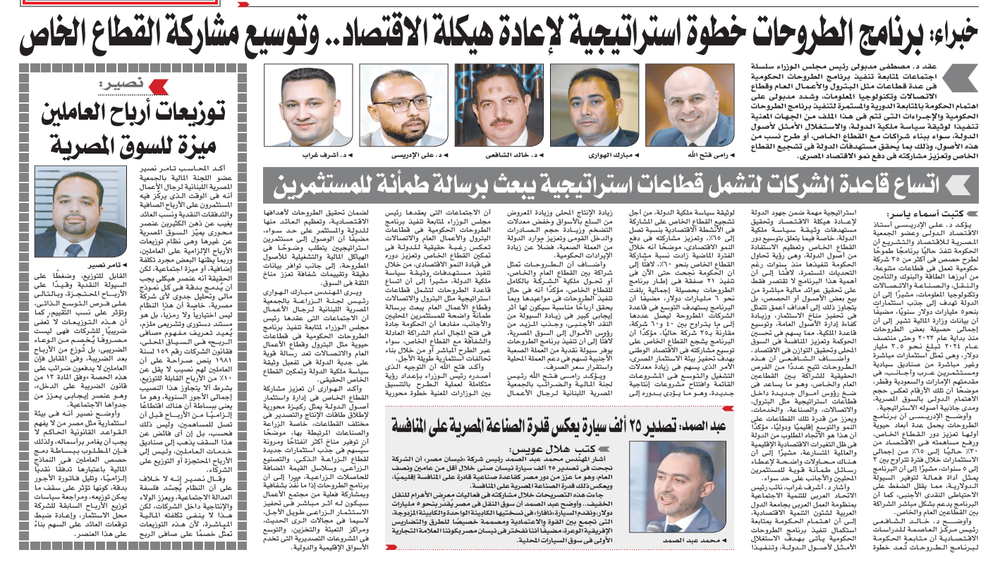Employee dividends are an advantage for the Egyptian market.
Employee dividends are an advantage for the Egyptian market.
![]() Tamer mohamednosair - • Tax services and everything related to taxes
Tamer mohamednosair - • Tax services and everything related to taxes

Accountant Tamer Naseer, a member of the Financial Committee of the Egyptian-Lebanese Businessmen Association, confirmed that while investors focus on net profits, cash flows, and return rates, many people forget a pivotal element that distinguishes the Egyptian market from others, which is the mandatory dividend distribution system for employees. Some may think of it as just an additional cost or a social benefit, but the truth is that it is a structural element that must be carefully integrated into every financial model and feasibility analysis for any Egyptian company, especially since this system is neither optional nor symbolic, but rather a binding constitutional and legislative document that redefines the concept of net profit in the local context. Companies Law No. 159 of 1981 explicitly stipulates that employees are entitled to no less than 10% of the profits for distribution, provided that this share does not exceed the total annual wages. This simply means that there is a mandatory deduction from profits before they reach shareholders. Not only that, but any surplus over this ceiling goes to employee service funds, not to retained earnings or distribution to partners.
Naseer said that there is no dispute that the system embodies the philosophy of social justice and enhances loyalty and productivity within companies. However, this does not negate its direct financial cost, as these distributions represent a deduction from distributable net profit, pressure on cash flow, and a restriction on retained earnings, thus limiting self-expansion opportunities and impacting valuation ratios. Furthermore, these distributions do not have any tax implications for companies, as they are not an expense deducted from the tax base, but rather are distributed from after-tax profits. In return, employees do not pay taxes on this share, in accordance with Article 13 of the Income Tax Law. This is a positive element that enhances its social relevance.
Naseer explained that in an investment environment like Egypt, anyone who does not understand the governing legal rules should not risk their capital. Therefore, what is required is simply to integrate employee allocations into the financial models as a mandatory cash burial, to accurately analyze the wage bill, as it affects the ceiling on what can be distributed, to review the previous dividend distribution policies of the investment company, and to re-adjust the return on share expectations based on this element.